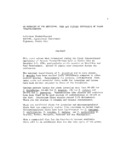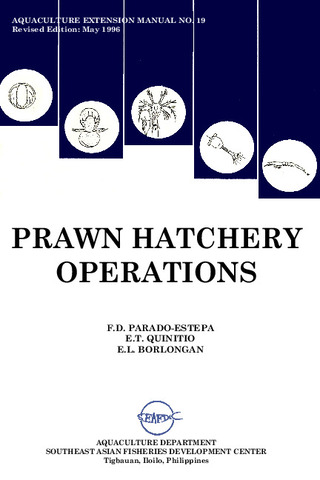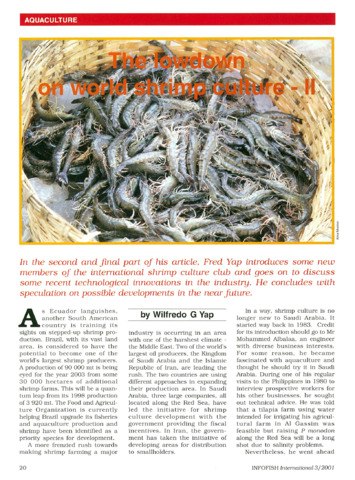A probiotic Bacillus strain containing amorphous poly-beta-hydroxybutyrate (PHB) stimulates the innate immune response of Penaeus monodon postlarvae
- Global styles
- MLA
- Vancouver
- Elsevier - Harvard
- APA
- Help

View/
Date
2017Author
Page views
2,300ASFA keyword
AGROVOC keyword
Taxonomic term
Metadata
Show full item record
Share
Abstract
In this study, the PHB-accumulating Bacillus sp. JL47 strain (capable of accumulating 55% PHB on cell dry weight) was investigated for its effects on the immune response of giant tiger shrimp (Penaeus monodon) postlarvae (PL) before and after the Vibrio campbellii challenge. Briefly, shrimp PL were cultured and fed with Artemia nauplii enriched with Bacillus sp. JL47. Shrimp receiving the Artemia nauplii without JL47 enrichment were used as control. After 15 days of feeding, the shrimp were challenged with pathogenic V. campbellii LMG 21363 at 106 cells mL-1 by immersion. Relative expression of the immune related genes encoding for prophenoloxidase (proPO), transglutaminase (TGase) and heat shock protein 70 (Hsp70) in the shrimp were measured before (0 h) and after (3, 6, 9, 12, 24 h) the Vibrio challenge by quantitative real-time PCR using β-actin as the reference gene. The expressions of TGase and proPO were significantly up-regulated (p < 0.05) within 9 h and 12 h, respectively after challenge in shrimp receiving the Bacillus sp. JL47 as compared to the challenged and non-challenged controls. Hsp70 expression was significantly increased (p < 0.05) at 3 h post-challenge in all challenged shrimp. Interestingly, proPO and TGase genes were significantly up-regulated (p < 0.05) in Bacillus sp. JL47 treated shrimp even before the Vibrio challenge was applied. No up-regulation in the Hsp70 gene, however, was observed under these conditions. The data suggest that the protective effect of the PHB-accumulating Bacillus sp. JL47 in shrimp was due to its capacity to stimulate the innate immune related genes of the shrimp, specifically the proPO and TGase genes. The application of probiotic Bacillus species, capable of accumulating a significant amount of PHB, is suggested as potential immunostimulatory strategy for aquaculture.
Suggested Citation
Laranja, J. L., Amar, E. C., Ludevese-Pascual, G., Niu, Y., Geaga, M. J., De Schryver, P., & Bossier, P. (2017). A probiotic Bacillus strain containing amorphous poly-beta-hydroxybutyrate (PHB) stimulates the innate immune response of Penaeus monodon postlarvae. Fish and Shellfish Immunology , 68, 202-210. https://doi.org/10.1016/j.fsi.2017.07.023
Type
ArticleISSN
1050-4648Collections
- Journal Articles [1258]
Related items
Showing items related by title, author, creator and subject.
-
An overview of the nutrition, feed and feeding techniques of prawn penaeid/shrimps
Piedad-Pascual, Felicitas (Philippine Council for Aquatic and Marine Research and Development, 1989)This paper echoes what transpired during the first International Conference of Penaeid Prawns/Shrimps held in Iloilo City in December 4-7, 1984, particularly on the Nutrition nd Feed Development. Around 25 papers were ... -
Series: Aquaculture extension manual; No. 19
Prawn hatchery operations
Parado-Estepa, Fe D.; Quinitio, Emilia T. ; Borlongan, Emeterio L. (Aquaculture Department, Southeast Asian Fisheries Development Center, 1996-05)
The manual, an updated version of the 1984 SEAFDEC/AQD manual, presents the underlying principles and step-by-step instructions of prawn larval and post-larval rearing. The techniques described are not only applicable to ...
; Borlongan, Emeterio L. (Aquaculture Department, Southeast Asian Fisheries Development Center, 1996-05)
The manual, an updated version of the 1984 SEAFDEC/AQD manual, presents the underlying principles and step-by-step instructions of prawn larval and post-larval rearing. The techniques described are not only applicable to ... -
The lowdown on world shrimp culture - II
Yap, Wilfredo G. (INFOFISH, 2001)This paper introduces some new members of the international shrimp culture club and goes on to discuss some recent technological innovations in the industry, particularly the polyculture of tilapia (mainly Oreochromis ...





